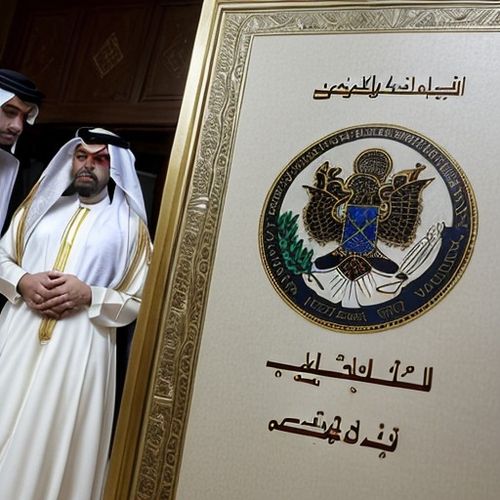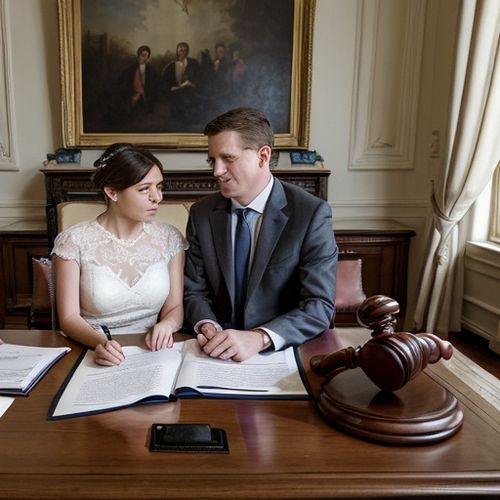In the realm of matrimonial law, few topics generate as much discussion as the concept of prenuptial agreements in the United Kingdom. Often misunderstood and sometimes controversial, these legal instruments have evolved significantly in recent years, reflecting changing societal attitudes toward marriage, divorce, and financial independence. The UK's approach to prenups differs markedly from other jurisdictions, particularly the United States, creating a unique legal landscape that couples must navigate carefully.
The legal status of prenuptial agreements in England and Wales occupies something of a gray area. Unlike some countries where prenups are automatically enforceable, British courts have traditionally treated them as just one factor among many when determining financial settlements upon divorce. This stems from the principle that the court retains ultimate discretion to ensure fairness under the Matrimonial Causes Act 1973. However, a landmark 2010 Supreme Court ruling in Radmacher v Granatino marked a turning point, establishing that courts should give effect to prenuptial agreements that are freely entered into by both parties with a full appreciation of their implications.
What exactly constitutes a valid prenuptial agreement in the UK? The courts have outlined several key requirements that must be met for a prenup to carry significant weight. Both parties must receive independent legal advice, there should be full financial disclosure, and neither party should feel pressured into signing. The agreement shouldn't leave one spouse in a position of severe financial hardship, and it's advisable to finalize the document at least 28 days before the wedding to avoid claims of duress. These safeguards aim to prevent situations where one partner might feel coerced into accepting unfair terms.
The content of British prenuptial agreements tends to focus on protecting pre-acquired assets, inherited wealth, and family businesses. It's common to see provisions regarding property owned before marriage, anticipated inheritances, and even expectations about financial support during the marriage. However, UK courts remain particularly cautious about clauses that attempt to limit financial provision for children, as the welfare of minors will always take precedence over any private agreement between parents.
Cultural attitudes toward prenups in Britain have shifted noticeably in recent decades. Once considered unromantic or indicative of distrust, they're increasingly viewed as a practical measure, especially among couples marrying later in life or those entering second marriages. The rise of cohabitation before marriage and the increasing financial independence of women have contributed to this change in perception. Many modern couples see prenups not as planning for divorce, but as establishing clear expectations and protecting assets they've worked hard to accumulate prior to marriage.
Scotland maintains a slightly different legal approach to marital agreements compared to England and Wales. Scottish law has traditionally been more receptive to prenuptial agreements, though they must still meet certain criteria to be enforceable. The differences between the two legal systems highlight the complexities that can arise for couples with connections to multiple parts of the UK or those who might relocate during their marriage.
The financial consequences of ignoring a prenup can be significant, as demonstrated by several high-profile cases. While British courts won't automatically enforce a prenuptial agreement, they will consider it alongside other factors like the needs of both parties, the standard of living during the marriage, and the welfare of any children. In cases where the agreement meets all the necessary criteria and doesn't create an unfair outcome, judges have shown increasing willingness to uphold its terms, particularly when both parties entered into it willingly and with proper legal advice.
Drafting a prenuptial agreement in the UK requires careful consideration of numerous factors. The timing of the agreement is crucial - leaving it until the last minute before the wedding can undermine its validity. The language used must be precise yet flexible enough to account for life's unpredictability. Many solicitors recommend including review clauses that trigger reconsideration of terms after major life events like the birth of children or significant changes in financial circumstances. These nuances make professional legal advice essential for anyone considering a prenup.
International couples face additional complexities when dealing with UK prenuptial agreements. The question of which country's laws apply becomes particularly important when spouses have connections to multiple jurisdictions. The EU's Rome III Regulation provides some framework for determining which country's laws govern marital agreements, but Brexit has introduced new uncertainties in this area. Couples with international elements often opt for "jurisdiction clauses" specifying which country's courts should interpret the agreement.
The cost of preparing a prenuptial agreement varies considerably depending on the complexity of the couple's financial situation. Simple agreements might cost a few thousand pounds, while more complex cases involving international elements or substantial assets can run into tens of thousands. While not insignificant, these costs pale in comparison to the potential expense and emotional toll of protracted divorce proceedings without any pre-existing agreement.
Looking to the future, many legal experts anticipate further evolution in how UK courts treat prenuptial agreements. Some advocate for legislation that would provide clearer statutory recognition of prenups, bringing England and Wales more in line with other jurisdictions. However, others caution against removing judicial discretion entirely, arguing that every marital breakdown presents unique circumstances that require individualized solutions. This ongoing debate ensures that prenuptial agreements will remain a dynamic and evolving area of family law.
For couples considering a prenuptial agreement, the key lies in approaching the process with transparency and mutual respect. The most successful agreements emerge from open conversations about financial expectations and shared goals, rather than as adversarial negotiations. When crafted thoughtfully and with proper legal guidance, a prenuptial agreement can provide clarity and security for both partners, allowing them to enter marriage with confidence rather than apprehension about what might happen if things go wrong.
The changing landscape of prenuptial agreements in the UK reflects broader shifts in how society views marriage and financial independence. As more couples choose to formalize their financial arrangements before marriage, the law continues to adapt to balance respect for private agreements with the court's duty to ensure fair outcomes. What remains constant is the importance of informed decision-making and quality legal advice for any couple contemplating this significant step before marriage.

By Eric Ward/Apr 19, 2025

By James Moore/Apr 19, 2025

By Daniel Scott/Apr 19, 2025

By George Bailey/Apr 19, 2025

By Amanda Phillips/Apr 19, 2025

By Amanda Phillips/Apr 19, 2025

By Joshua Howard/Apr 19, 2025

By Thomas Roberts/Apr 19, 2025

By Thomas Roberts/Apr 19, 2025

By Noah Bell/Apr 19, 2025

By James Moore/Apr 19, 2025

By Rebecca Stewart/Apr 19, 2025

By Noah Bell/Apr 19, 2025

By Elizabeth Taylor/Apr 19, 2025

By Benjamin Evans/Apr 19, 2025

By Laura Wilson/Apr 19, 2025

By Victoria Gonzalez/Apr 19, 2025

By Laura Wilson/Apr 19, 2025

By Laura Wilson/Apr 19, 2025

By Sophia Lewis/Apr 19, 2025